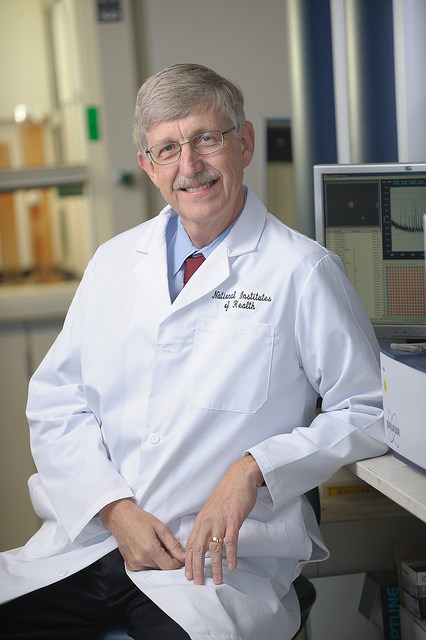An ‘epic scientific misadventure’: NIH head Francis Collins ponders fallout from CRISPR baby study
By Jon Cohen,
Science
| 11. 30. 2018
“Should such epic scientific misadventures proceed, a technology with enormous promise for prevention and treatment of disease will be overshadowed by justifiable public outrage, fear, and disgust. NIH does not support the use of gene-editing technologies in human embryos.”
A “profoundly unfortunate,” “ill-considered,” “epic scientific misadventure” that “flout[ed] international ethical norms” and was “largely carried out in secret” with “utterly unconvincing” justifications. Those are the words in a statement issued by Francis Collins, head of the U.S. National Institutes of Health (NIH) in Bethesda, Maryland, in response to the claim by He Jiankui of the Southern University of Science and Technology in Shenzhen, China, that he used CRISPR to genetically modify two embryos, resulting in the recent birth of twin girls.
The scathing condemnation from the typically measured NIH chief, who has done landmark genetic research himself, came hours after He first described his work at the second International Summit on Human Genome Editing in Hong Kong, China, on Wednesday. “The need for development of binding international consensus on setting limits for this kind of research, now being debated in Hong Kong, has never been more apparent,” Collins wrote.
The next day, the meeting’s prominent organizing committee—convened by academies of science and medicine from the United States, the United Kingdom, and Hong Kong—issued its own statement about what it...
Related Articles
By Kevin Davies , Genetic Engineering and Biotechnology News | 10.22.2024
By Isaac Schultz, Gizmodo | 10.18.2024
Colossal Biosciences, a company mainly known for intending to genetically engineer proxies for several iconic extinct species, announced this week that it has made major steps towards the de-extinction of the thylacine, or Tasmanian tiger.
The thylacine was a carnivorous...
By Claudia López Lloreda, Undark Magazine | 10.02.2024
WHEN Andres Moreno-Estrada began studying genetics back in the early 2000s, the high cost of sequencing DNA was the biggest barrier to understanding the role of genes in human health and disease. But with time, the problems shifted.
“Technology is no...
By Jocelyn Kaiser , Science | 10.09.2024
Rare and fatal, the genetic disease known as cerebral adrenoleukodystrophy (ALD) devastates the brain in young boys. A mutation on the X chromosome leads to a buildup of fats that damage the insulation around nerve cells, leading to seizures, blindness...




